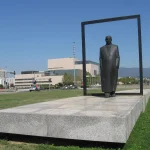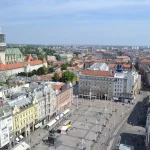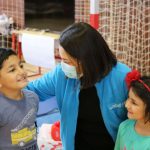Meet Davorka Budimir, author of Political Elite in Croatia.
Somewhere in high school, our teacher of Latin was checking the knowledge of one of our classmates, who wasn’t exactly famous for his command of Latin.
The question was there, but our classmate took his time. Prompted by the teacher to finally please say something, he gleefully shouted, much to everyone’s surprise: Initia omnium rerum difficilia sunt! (the beginnings of all things are difficult). The quote did not help him much because it was not the answer to the question, but the saying so often comes as a cosy consolation, whenever you are staring at a blank screen, knowing that you are not alone – the old Romans suffered from the same syndrome thousands of years back, as well!
Since this morning I have almost pressed my ”delete” key out of function, so I better begin before it really happens.
The subject at hand is a book, well, two books, actually. ”Political Elite in Croatia 1986 – 1990” and ”Political Elite in Croatia 1990 – 2000”, two capital books consistently ignored by the Croatian media.
Question: Is the Croatian political system still clinging on to the ghosts of the not so distant past?
Answer: Most probably.
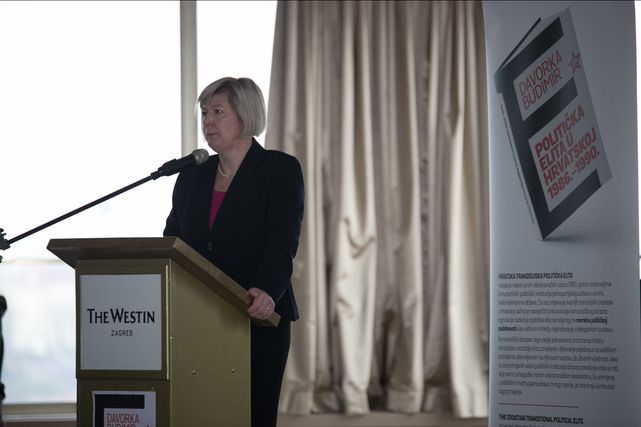
Davorka Budimir, PhD, is a Zagreb born and raised political scientist (and the best student of her class at that), an entrepreneur in a successful family business, president of Transparency International Croatia and, after 15 years of research, author of the two books in the subject.
The first that came out last year, ”Political Elite in Croatia 1990 – 2000” caused considerable stir and uneasiness around the country, most of it behind the stage so that the presentation of the book was followed by only a few media outlets. Who would ever dare to touch the nobleness of politics and of its moral, honest and dignified protagonists? Meet Davorka.
”I belong to quite an unfortunate generation. I graduated in 1993, cum laude – that could not find me any job in the country at war and with all the calamities therein and thereof. I provided for my existence elsewhere, my family started a business and I thought I would never plunge back into science. Not that I wanted to cast away my years of education. On the other hand, I went to study political sciences very much because my grandfather was teasing me for years that I was going to end up in agriculture.
I enrolled at the Faculty of Political Sciences only because it was on the list next to the Faculty of Agriculture.”
Life took serious paths. Money had to be earned with one’s own hands. A hyperactive and curious person, she was venturing through various fields related to her business, that implied various offices, papers, permissions, banks, invoices, laws and regulations – normal, inevitable bureaucracy one would say. Practice is the way.
”As time went by, the political scientist in me was becoming more and more aware of the flaws of our society, of some specificities I could recognise as fruits of the way and the circumstances under which this state was born, and, especially, of where it had come from. The state does not mean (only) territory, it means the people who created it in the first place. Real life was indicating that something was wrong with the system. Many things had changed, but the political system seemed to have remained unaltered.
Academic research during those times was meagre, which should not surprise when the turbulence and transformation Croatia was going through is kept in mind. No war is a favourable condition for any academic community, among others. I was becoming more and more intrigued and started investigating what was available. I wanted to explore the system through facts and documents on the three main levers of political power – the president of the state, the government and the parliament.”
The year was 2000.
”I was looking for the minutes of, for example, some crucial meetings of the Central Committee of the Croatian Communist Party from 1989, or for the founding documents of the Croatian Democratic Union (HDZ), I wanted to know what changes were happening, what decisions were made, when, who voted for or against, who was appointed etc. You would not believe it how many people I contacted suggested not to touch the wasps’ nest. Yet, the more I was ”discouraged” and warned, the more certain I was I had taken the right direction. Despite the risks. I was not to judge or criticise, my goal was to assemble some material based on facts and documents, without any judgements on what was right and what was wrong.”
The more Davorka researched, the more people were contacting her, not only to warn her of the dangers of the matter but also to offer the documents they had at home. Some of them turned out to be simply precious as they had vanished from public reach.
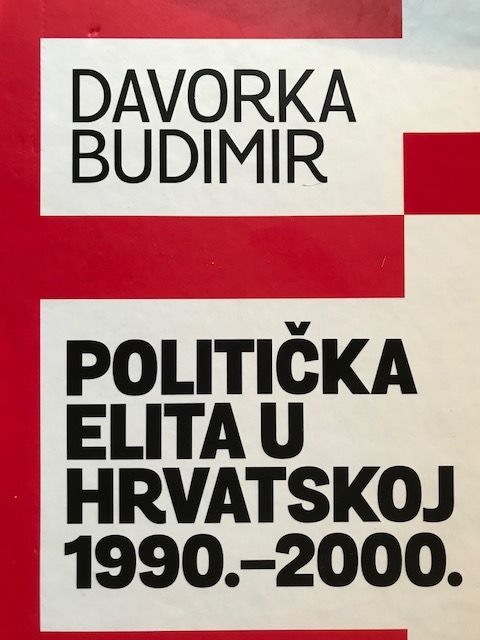
”When I realised I had enough material, I decided to apply for a doctorate at my former faculty, known as ”very much left” to this very day. Nobody was truly enchanted by my theme, and troubles began very soon. My mentor was avoiding our consultations with all kinds of excuses like he was just having flu, was busy elsewhere and could not make it that day etc. Warnings were coming in all the time. In brief, all terms expired, the relative commission never evaluated my thesis, and, alongside with all the setbacks thereof, made me waste almost one year of time.
I turned to the namesake faculty in Mostar (Bosnia and Herzegovina), where I was accepted and enabled to do my doctorate. Of course, I had to pay all the fees and cover all the costs once again. Well, do not touch the Communists! Alas! I was not aiming to accuse, my only aim was to leave a comprehensive academic work about the recent political past to posterity because there were none of the sorts. As we can witness, many of those decisions and political moves were wrong and harmful, people made mistakes, eloped from one party to another, took offices however unqualified, and so on. Well, who knows – had we been in their shoes, maybe we would have behaved in the same manner. Nobody likes to have his wrong deeds go public.
Yet, all else aside, citizens are entitled to know and as a citizen of this country, I claimed my rights. Nothing more, in fact. Victors create history. Commons know the truth.
It took me fifteen years of work. After my PhD, I realised it should be made accessible to the widest public possible. People must know why in Croatia only some changes have happened, but the system has not changed at all. It has remained a system where the ruling party decides upon everything after its president has decided upon everything in the first place, which makes him the most powerful person in the country. Just like in communism. The electorate is deceived, it votes for a party, it does not elect those who are going to govern. We are informed about the names by the press, the names that direct, create and condition our private life and existence.”
And we would not care who they are if we could have a decent, comfortable and happy life. Reminds me of some times gone-by, indeed.
”When you go through the lists of candidates from various bodies and functions of the Communist League of Croatia which you can find in both of my books, you will see how many names rotate across and reappear in different properties, well into the times of the new, independent state, that is, well into the times when the system was supposedly a new one. In communism, you had a chance to progress if you possessed the basic of all virtues, known as ”moral and political aptness”.
In the new Croatian multi-party democracy, that demeaning term was changed into ”affiliation to the party”. Aptness and affiliation are the only two prerogatives for a political career, it is aptness and affiliation that the political elites grow on. While, for instance, academic elite implies long work and exceptional scientific results and achievements, to be a part of the political elite all you have to be is to be humbly affiliated. Which makes the term ”elite” quite derogatory.”
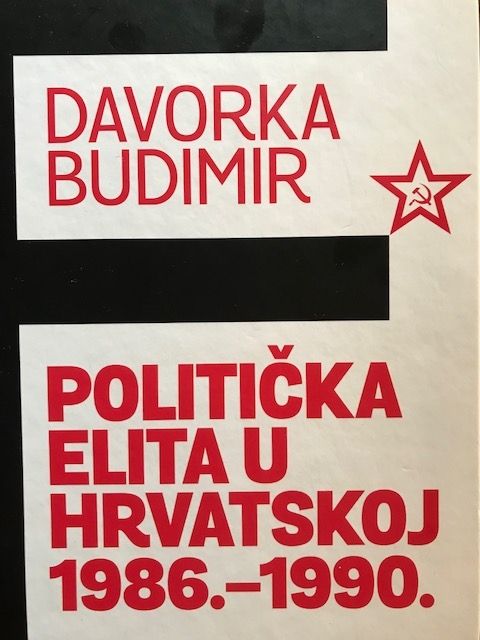
So, what was ”the elite” so afraid of?
”They never want to be touched, of course. After a huge, massive migration of the members of the Communist Party to the new Croatian Democratic League in the late ‘80s, the communist migrants turned into imbued patriots overnight and wanted to erase any thought on their true political past. Aptness was replaced with affiliation, communism, Yugoslavia etc. became odious terms they did not want to have anything to do or to be associated with. And nobody is ever responsible for fraudulent laws and immense criminal robbery of public assets. Elite it is. For example, the law on the origins of private property was abolished only a few days after the first government took a seat.
The new economic system enabled robbery under the same, party-affiliated political system. What I have gone through, including this almost complete silence about my books in the media, shows also another face of that same system, and its real power.”
Nothing has changed! Yet, the books saw the light of the day.
”Flirting with the idea of publishing it in a book, I was aware I would not find an editor that would not require to intervene in the contents, to remove some parts, a list, a name here and there. The only solution was to publish it at my own expense, which I could not afford. Then, as if by some cosmic fate, a feminist NGO accused me publicly of conflict of interest, for having allegedly employed somebody at the Transparency International of which I had become president, against the law and by privilege. I sued and they had to remunerate me for defamation. With that money I published the first book last year, and from the sales of that one, I published the second book. On the cover of which I bravely put the red star as the symbol of its omnipresence.”
Transparency International. Interesting.
”Well, that was yet another thing that happened all by itself, I was elected president of Transparency International Croatia quite at random, at its annual assembly in 2013. And soon the troubles started. I wanted to know all about the organisation, and I soon found out that, unlike its general perception, Transparency International was nothing more than a German NGO with its offices in many other countries. I started asking questions, including some referring to finances, I refused to do some things they demanded from us as I deemed them harmful for the Croatian society, and it did not take long to the central office to kick us out of the chain, together with their organisation in the United States. This makes me proud! Croatia is a small country, but we refuse to serve some hidden agendas of those behind the organisation. We still exist, though, as the legal annulment has not happened yet, and will most probably not happen in some foreseeable time.”
If elections could change anything, they would abolish them.
”The system can be changed only through institutions and the way they are formed. No system can be changed through appointed officials people have not voted for. Time flows in constant expectations of a better future which can be created only by young people brought up in honesty, educated and taught the values of honest work and of their place and role in the society. I am not an optimist, but a country led by party affiliation can not be a land of promise.”
These two books by Dr. Budimir are outstanding and, simply, too precious to be overlooked. They are like compulsory reference books not only for historians and sociologists, but for anybody who loves and cherishes this beautiful country and appreciates the hardships its people went through on the way to independence.
Despite the silence from the media, both books are available in some book stores and kiosks in Zagreb. Each book has a summary in English, as well. If you want to get your own copy, you can send your request to budimirdavorka@gmail.com.



